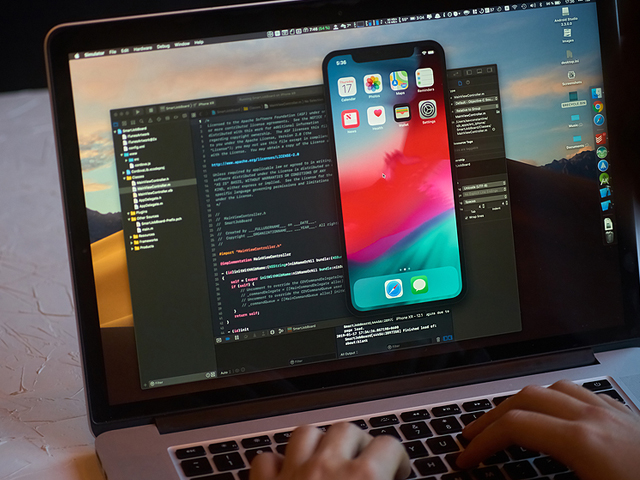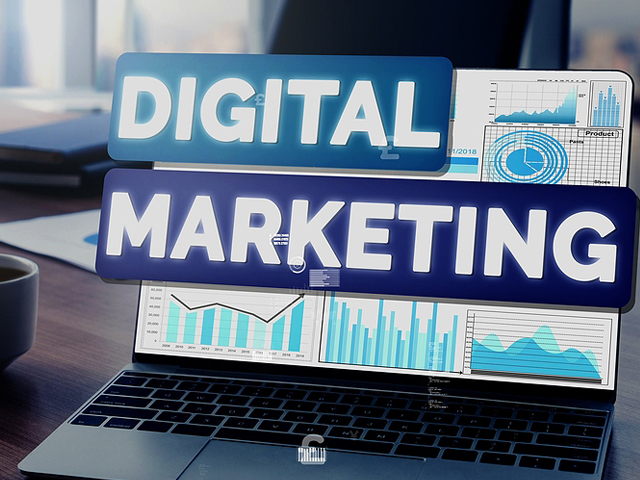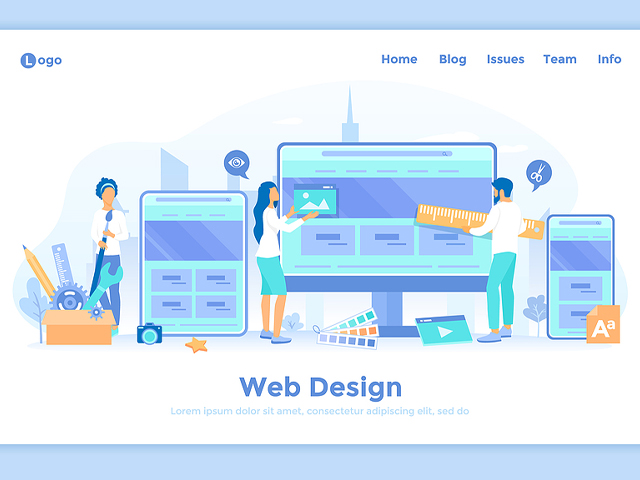
If you want to become an iOS Developer and be successful, there are certain hard skills you need to have. This includes market research, conceptualization, coding and basic design, compliance, user testing and sending your app to the App Store. It can be straightforward to learn these hard skills, however, dedicated study is recommended. The best iOS Developers combine a host of soft skills with technical expertise for the best results. It can take time to grow your skills but thankfully, you will have the opportunity to practice them across many disciplines.
Educate yourself in iOS Development Fundamentals
If you wish to become an iOS Developer, begin by getting a focused understanding of what development is. iOS development is a specialized area, consisting of the same processes that bring different products from concept to market. You can skip this portion if you have been working in development already.
However, if you are new to development and wish to work in this industry, you need to understand how it works and what role you are going to play in it. This can be accomplished by taking a beginner's course in development. You may have some working developer contacts that you can ask questions about what kinds of tasks they are involved with.
Become familiar with Top Programming Languages
There are three main things that iOS Developers need to understand when they are getting started: the primary iOS programming languages of Objective-C and Swift and Xcode. After you have a grasp of these three features, you can start using your wisdom to work and expand your skill sets. There is no limit to the number of skills you can achieve.
Beyond Swift, Objective-C and Xcode, the tools iOS Developers use are typically ways to streamline the process, as opposed to creating everything from scratch each time. For instance, there are Cocoapods to manage external libraries and scale projects; Dash for API documentation and code snippet management; Firebase for databasing, user authentication and hosting; and Parse for back-end implementation, to name just a few.
There are many apps capable of carrying out many jobs. If you want your location pinpointed with GPS or push notifications sent out, there are many purpose-made tools to help get the job done. It is up to the Developer to decide which tools they want to access. The majority of apps depend on a tiny subset of these tools and which ones it needs is determined by the nature of the app.
Having the correct digital tools is a major asset. You will be able to tackle higher-level iOS Development challenges including managing classes, writing switch and if statements, improving interoperability, initialization and inheritance and taking care of problems. At this stage, your technical expertise may also extend to networking tasks such as data exchange, Grand Central Dispatch, Core Data and JavaScript Object Notation.
As you gain more experience, you will become familiar with different iOS development elements that often fall to coworkers in other departments; however, an iOS Developer needs to be aware of these features including UX/UI design, information architecture and layout design.
Sign-Up for an iOS Developer Course
There is a high demand for iOS Developers. There is a wide scarcity in tech jobs according to Apple's growth projections. This trend is expected to only increase in the future. This means there are competitive wages with average salaries ranging above 100K annually.
The more specialized skills you have and the more programming languages you understand, the more compensation you will be eligible for. If you want your resume to stand out, consider having experience with both Objective-C and its updated friend, Swift.
There are plenty of technical skills that an iOS Developer requires. This can come with a strong learning curve even though many of the skills are easy to obtain. Many individuals have a hard time learning how to use Swift for programming iOS apps. Those who are not savvy with the Mac operating system will have to learn how to use macOS and how to build iOS binaries.
Another common issue is uploading the binaries in Xcode. Consider taking a certification class in iOS development to help you understand the various opportunities and challenges that come with developing in iOS. Recieving instruction with the help of a professional teacher in the field can leave you feeling more prepared to learn all of the essentials. Having constant feedback will help you grow faster and stay focused.
Build your Own Projects to Practice your iOS Development Abilities
After you have mastered the basics, you will understand how to implement higher-level functions if needed. At this point, you are ready to start building and creating. This is how you learn on the spot. If you wait until you know everything before you start, you will never get started!
Remember, part of the process is stopping to look things up along the way. Try to start small and create a practice app that follows instructions on a step-by-step basis to take you through the complete process. Having your steps clearly outlined before attempting to build something from scratch is a more logical way to begin.
Following a set of instructions is a good way to see the steps involved in putting together an app, but to truly experience every stage of development, you’ll need to build your own original idea from the ground up. This will give you a chance to oversee not just the app’s assembly, but also the initial conceptualization process, market research and compliance.
The design phase comes after conceptualization and this determines how the app will operate. It relies on wireframes for modeling. Lastly, the UX and UI design stage outlines the specifics of every page's interactivity, appearance and organization.
After the planning is done, it is time to start coding your app. Creating an app consists of 3 separate features: the API or Application Programming Interface which is responsible for translating what is occurring on the server-side into something a user's mobile device can comprehend; the back end which consists of everything that happens on the server-side or the heavy lifting of the app and the front end which is each part the user directly interacts with.
Some iOS Developers do all three facets and others specialize in back-end or front-end development specifically. Experiment with all avenues to determine what is the best fit for you.
If you want to be ambitious, consider taking your practice app through the last development stages. Test your app with users and analyze their feedback to determine which improvements you want to make. Lastly, submit your app to the App Store so that it is publicly available.
Continue Growing your Soft Skills
There are a variety of soft skills that iOS Developers rely on. Which types of skills you use will greatly depend on the kind of app you are creating. For example, an international banking app will have different requirements compared to a gaming app. There are technical abilities and a set of soft skills that are necessary to perform your job well. This experience can help you climb the ladder and eventually become a Senior iOS Developer.
Communication is another vital skill. In a senior position, you will have to educate and guide other Developers to ensure the team succeeds. This can take patience, clear messaging, teamwork and diplomacy. Acting as a liaison with other departments will mean that you will be communicating with emails and not just writing code.
Having an "Apple mindset," and being capable of demonstrating big-picture thinking is imperative for a successful iOS Developer. Understanding how to make an app compatible with Apple devices and intuitive for Apple users is essential. Knowing how to create an app is just half of the job.
Showcase your Work and Build an iOS Development Portfolio
You can begin creating our iOS development portfolio right away. Once you have obtained the skills to start building items, you can begin showing them off. Don't forget to include any projects that were part of your coursework as examples of your skills.
This can form the foundation of your professional portfolio. Once you gain extra experience, you will want to only choose your best work to include in your portfolio. At the start, however, you can focus more on showcasing the types of work you can offer instead of perfectly completed jobs.
Check out GitHub as a great place to show people how you accomplished your tasks and what you have to share. This platform enables you to showcase portions of code in context. This makes it possible for other people to comprehend what they are seeing even if there is no completed functioning project available. It allows you to show your process and highlights how you approach your work. This indicates how you innovatively solve issues and how you respond to things that come up.
Once you have a finished, functional product, make it official and upload it to the App Store. After, you can start creating your professional network by joining offline and online communities. If you are seeking a mentor, this is a great time to reach out and let them see your skills and share what accomplishments you hope to achieve.
How much does an iOS Developer make?
iOS Developer salaries range between 90K and 180K.











